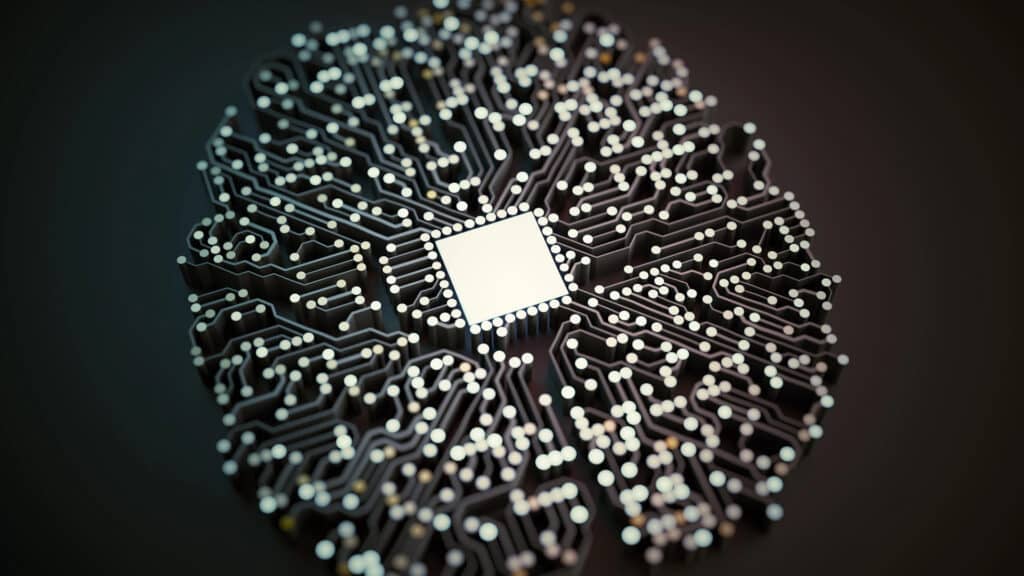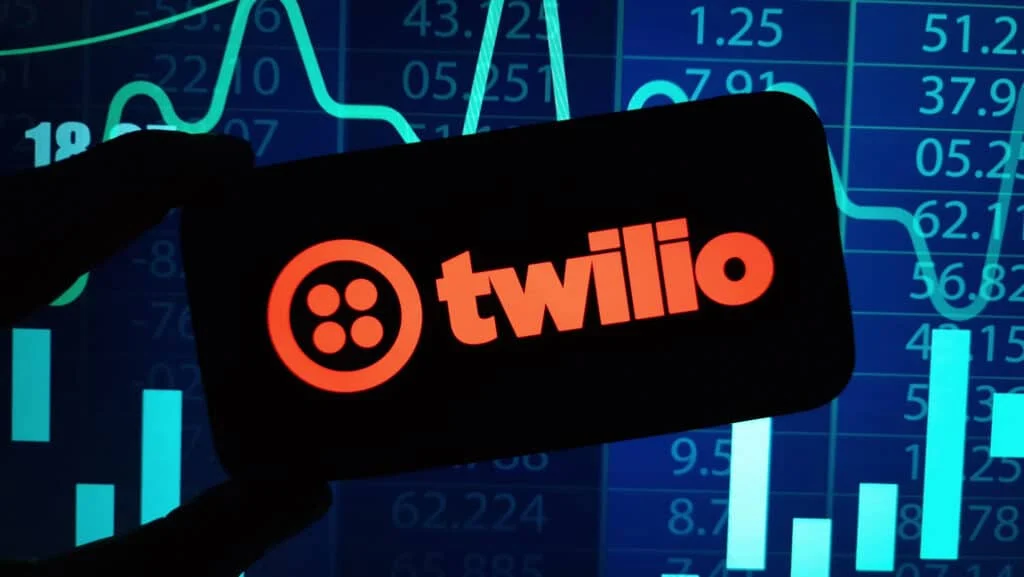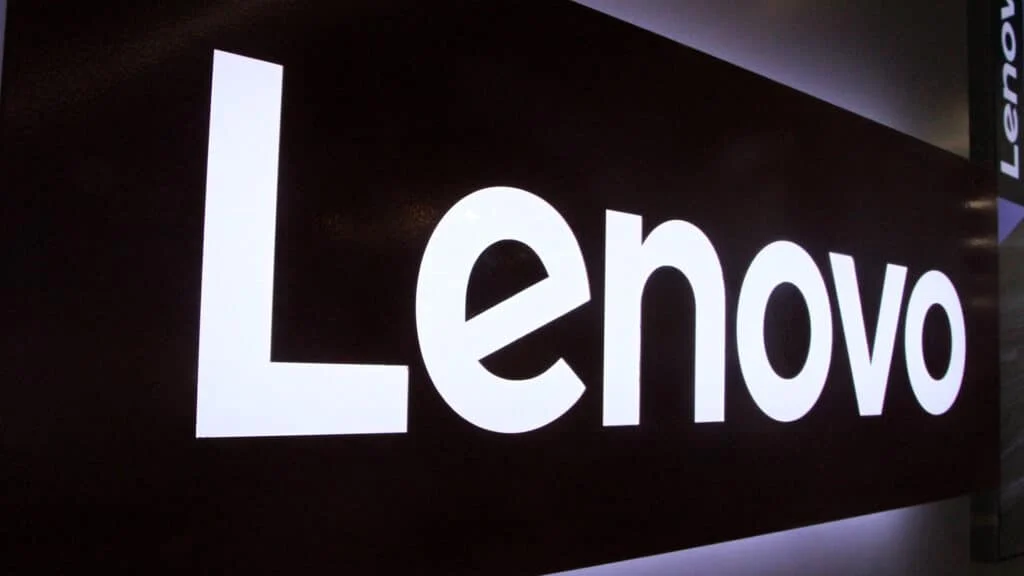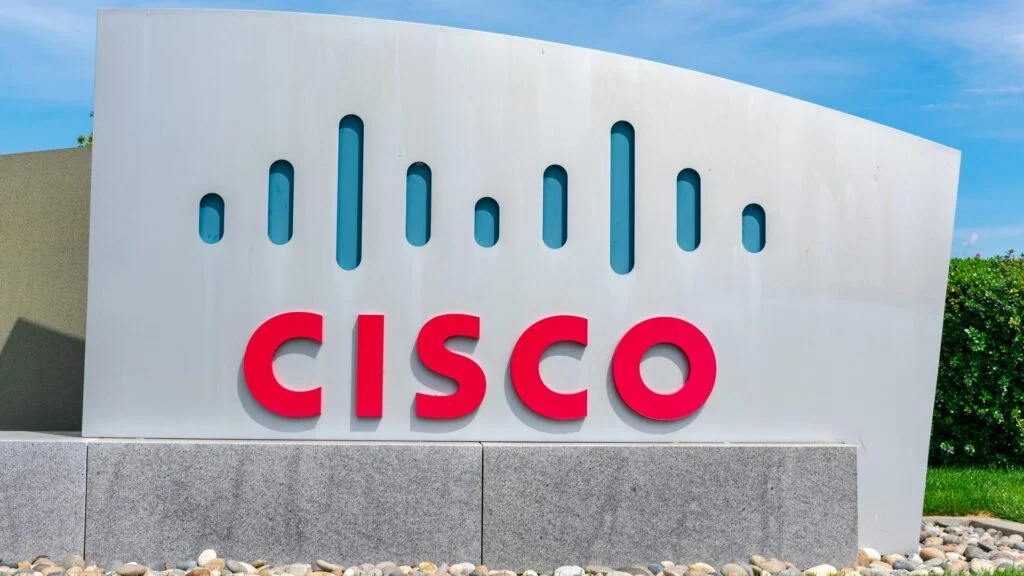What does it take to turn bold ideas into reality? 🤔 At Dell Tech World 2025, hosts Patrick Moorhead and Daniel Newman sit down for a conversation with Dell Technologies‘ Founder, Chairman and CEO, Michael Dell, for his view on driving bold innovation and empowering organizations to define their future. The discussion explores how Dell Technologies is providing the infrastructure and solutions necessary for organizations to navigate today’s complex landscape and turn their boldest ideas into reality. ✨
Key takeaways include:
🔹Driving Innovation: Michael Dell articulated Dell Technologies’ commitment to staying at the forefront of technological advancement, driving innovation to meet the evolving needs of businesses and society.
🔹Modernizing for the Future: The conversation explored Dell Technologies’ crucial role in providing the infrastructure and solutions necessary for organizations to modernize their workplaces and data centers, enabling them to adapt and thrive in a rapidly changing world.
🔹Harnessing the Power of AI: Michael Dell shared his perspective on the transformative impact of AI across industries and how Dell Technologies is helping customers achieve desired outcomes.
🔹Empowering Bold Visions: The discussion focused on how Dell Technologies supports organizations and individuals in turning their most ambitious ideas into tangible realities, providing the tools and resources to bring those visions to life.
Learn more at Dell Technologies.
Watch the full video at Six Five Media, and be sure to subscribe to our YouTube channel, so you never miss an episode.
Or listen to the audio here:
Disclaimer: Six Five On The Road is for information and entertainment purposes only. Over the course of this webcast, we may talk about companies that are publicly traded, and we may even reference that fact and their equity share price, but please do not take anything that we say as a recommendation about what you should do with your investment dollars. We are not investment advisors, and we ask that you do not treat us as such.
Transcript:
Patrick Moorhead: And we are back on stage here. The keynote has just ended. Dan and I just did our wrap and we have a special guest here. You can’t imagine who this might be, but it was a really good keynote, Daniel. And what I liked especially is making enterprise AI real, removing the barriers like cost and data management and the complexity away from these companies.
Daniel Newman: Yeah. Talking to large companies, different industries, you and I have been challenging the industry to bring some practicality. Of course we see these massive AI factories and data centers being built out, but where’s the value being extracted for retail customers, for financial services customers? And Pat, we got a good dose of that this morning.
Patrick Moorhead: We did. Michael, how are you?
Michael Dell: I’m doing very well. Thank you guys for being here.
Patrick Moorhead: No, I appreciate it. You get off the stage, have enough time to, I don’t know, recharge the microphone or something, get a glass of water. But thank you so much.
Michael Dell: Absolutely. Yeah.
Daniel Newman: It’s good to have you here, Michael. I mean, what a great keynote way to start the day. Hearing from JP Morgan, hearing from Lowe’s and of course hearing from Jensen, coming remotely from Computex. But it was great that you were able to get that because the progress that you’ve made with Nvidia and Dell’s partnership has been so impressive over the years. But you came up on stage and you had this kind of the city, you had the cross streets. You’re talking about inventing the future. That’s a big job to take on at this particular moment. Michael, how are you thinking about inventing the future and what is Dell’s role, as you see, in making this happen?
Michael Dell: You know, I think one of the big points is that there’s a big re- architecture going on with AI. And one difference between last year’s Deltec World and this year is now we have 3,000 plus of these customers deploying Dell AI factories. Some are really big, some are medium sized, some are small. And you know, you saw some great examples on stage. We’ll have more throughout the show and more partners. And you know, this is not easy stuff, right? Sure. It is highly complex. It takes a lot of work in terms of organizing the data, dealing with privacy, dealing with security, finding the right models, the right size. But there is this enormous build out that’s going on. We’re definitely seeing it with our customers of all sizes. And obviously we have directed the company toward this opportunity in a massive way across the board. Right? From the technology side to services, to partnerships, go to market our DFS, asset management, everything to enable this big build out.
Patrick Moorhead: So Dell is unique in that it spans all the way from the client computing enterprise edge to the CSP to the enterprise data center. You made hundreds of announcements over the past two years on modernizing data centers, but you’ve been doing this for 30 years. Can you talk a little bit about your approach, maybe the new way you’re looking at doing this, maybe even pepper in some of your favorite announcements?
Michael Dell: Yeah, so at this show, you know, we’re talking about more than 200 announcements and enhancements to the Dell AI factory that have occurred over the last year and are happening right now. And I think it’s important to step back a little bit and say as we go from basic LLMs to test time compute reasoning agents, each increment you get on the order of a 10-100x increase in tokens.
Daniel Newman: Right.
Michael Dell: So when I was talking about that system that we’re deploying right now, you know, that could support tens of trillions of tokens, this is major. Right. That system is like more capacity than all existed. Right. Not that long ago. So I mean the exponential growth, these things are enormous. So re-architecting the compute, the storage, the networking and then having the bite sized pieces of it that work at the level of a retail store or inside a telco cellular base station or inside a small restaurant or a gas station in your PC, all the way up to these massive training models. So you’ll see on the show floor, you know, our engineering teams have been cranking up the innovation tomorrow. You know, Jeff and Arthur, Sam will go even in more detail about you know, the progress we’re making to support all this. And I really think we’re still in the first like 10% of this curve adoption. Because you do see some companies that are going ahead but you know, from being out there and I know that a lot of customers, they’re not exactly sure what to do with all this, how to do it, when, where to start. So we’re helping them and you’ll see a lot of more bite sized solutions and appliances and you know, partnership with Cohere around North to make it an easy appliance where a midsize company can begin to utilize these tools.
Daniel Newman: Yeah, it was really interesting. I listened to the Computex keynote last night. Michael and I think Jensen was talking about building the spine basically with NVLink and how they can basically build a spine now that can handle more traffic than the entire Internet handles right now with like seven racks. I mean, it’s like such a small proportion of infrastructure to get so much out. And much of this is being done with Dell, which is great. You know, a lot of the focus here has been about AI changing industries. You know, you heard in my preamble, I talked about retail, I talked about financial services. You brought these people up on stage. These companies want to accelerate outcomes. They want to get to the point where this investment, the cities of infrastructure they’re building become outputs of greater productivity. How are you sort of enabling? How are you seeing that happen? I heard in your last answer that you’re like, I hear a lot of excitement, but a little bit of there’s still this kind of hesitancy. How do we make that happen faster? How does Dell help make that happen faster?
Michael Dell: Well, this is where we need to get vertical and get into the partnerships and build these solutions. And we’ve built hundreds of them now that are either reference platforms or starter kits or ways for customers to begin to utilize this around specific use cases, whether it’s a coding assistant or an agent, chatbot, or, you know, improving their documentation flows, or, you know, somebody in a manufacturing floor says, oh, how do I interpret this problem? And I’ve got, you know, thousands of manuals and documents now, I can put this into the model and it’s going to tell me exactly what the problem is and I don’t have to go search through all these documents and manuals. So really building practical solutions. And you see a lot of partners here also at our Expo that are joined up with us because we can’t do this by ourselves. But it is advancing at an incredible rate. And, yeah, this is maybe the most exciting time ever in our industry that I’ve experienced. What do you guys think?
Patrick Moorhead: Yeah, I mean, listen, I always like to say, it’s not your imagination. Things are moving quicker and it is big this time. I mean, there have been fits and starts. Seven or eight years ago, chatbots were gonna change the world. Okay? Industry 4.0 was gonna transform the edge overnight. As I look back, there were some missing pieces of that. And I do try to connect the pieces between what was missing and what’s available now. We have a thousand times more AI performance per watt at the edge than we did eight years ago. Okay. We have systems to manage workflows better at the edge. So, yeah, I fully believe this is like the Internet, the second generation of the Internet. It’s just that big. The things that the Internet didn’t change, though there were pockets, that there really weren’t changes, particularly on the edge. You know, we took a paper model and we digitized it.
Michael Dell: Right.
Patrick Moorhead: As opposed to changing the way that things get done. So see, I believe that this is the real thing. I think you’ve been doing this for close to 40 years, I’m on year 35 coming up here, but this is the real deal.
Michael Dell: Yeah. I think that reimagining what you’re doing is sort of the hardest thing to do because you have to sort of take yourself out of what you’re doing right now.
Daniel Newman: Yes.
Michael Dell: And so, you know, that’s what we’re doing inside Dell Technologies. It’s what many of our customers are working on doing. But again, we’re a long way from the whole world being reimagined and that’s going to take years to occur. There are barriers and that sort of thing, but the benefits are unmistakable.
Patrick Moorhead: Sure.
Michael Dell: And I think existing companies sort of have this window of opportunity to jump ahead and we certainly don’t want to miss it. We don’t want our customers to miss it. It’s happening.
Daniel Newman: Yeah. The diffusion of technology though, is incredibly fast.
Michael Dell: Yeah. This is all happening way faster than the Internet rolled out.
Daniel Newman: The ability for us to actually digest it is actually, it’s sort of rate limited by us as humans. Because if you actually see how fast these technologies are progressing, it’s not so much the tech, it’s really us trying to figure out how to, you know, digest, ingest and proliferate this into the world. But we’ve seen every transformation. You mentioned Industry 4, you mentioned the Internet just now, we do see these cycles get shorter. And what I am very confident is, it isn’t like an Internet moment where it’s like going to, going to build the infrastructure is going to be years. I think it’s going to be, you know, months. Every few months we’re going to see meaningful, noticeable progress. And not just for technologists and scientists. I think it’s meaningful progress that people like, well, we’re technologists, but people that are out in the world every day, shopping at Lowe’s, banking at JP Morgan can experience in the applications and in the tools and in their, in real life experiences.
Michael Dell: Yeah. And you know, one of the things we do at Dell Tech World, we have these 200 plus breakout sessions that are highly technical. And so we’ll get into all those details. Okay. You have regulation, you’ve got security concerns, you have data, privacy concerns, you’ve got who’s supposed to use what data and how, you know, inside your organization, how do you do that and apply AI? And we’re here to help.
Patrick Moorhead: So Michael, if I look at your rate of product announcements, if I look at the partnerships that you have, it’s close to exponential at the increased clock rate that Dell is operating right now. And it seems like this is what needs to be done to not only deliver the AI to other people outside of it, but also transform Dell itself inside. What words of wisdom would you give a company who might not be as far along the path as Dell is to minimize time for their transformations? Is it a state of mind? Is it the type of people you hire? Is it a cultural thing?
Michael Dell: Well, you know, Daniel was pointing to earlier sort of the cultural aspects here. And I do think there’s a big element there because this is ultimately a change management activity. Right. And you know, you hear various phrases like never let a crisis go to waste. You know, one of my favorites is if there’s not a crisis, make one. Right. You know, let’s, let’s, let’s figure out how to turn this into a crisis where if we don’t do it, something bad is going to happen. Right. And so how do you lead people through such incredible change? First of all, I think you have to explain what is going on. Why is this important? What does it actually mean? What happens if we do it? What happens if we don’t do it? By the way, we don’t have a choice. We’re doing it. But what does it actually mean to each person and each group and each activity inside the company? How’s it going to ultimately make us a better company to deliver on our mission and our promise and our vision to help customers in whatever it is we’re doing. And I do think this is an urgent priority for organizations and not all of them will go at the same pace. We recognize that, but we’re certainly going for it. And we see the opportunity and we see more and more companies, kind of realizing the kind of things that Simon, Sini, and Larry were talking about. And I do think it will separate the winning and losing companies faster than ever before. You know, that’s also been a trend is, businesses have been succeeding or failing at a faster rate because of increasing change.
Patrick Moorhead: Yeah, you made a not so subtle nod to you really need to get on the train or you could be left behind. I couldn’t help but to think companies like Blockbuster who didn’t get on the media train, didn’t get on the Internet train and they were just wiped out. There were a ton of media companies, there were brick and mortar stores that didn’t make it. There were just too many consumer electronic stores out there. When people felt very comfortable buying them online.
Michael Dell: Certainly in our lifetimes, there was never a moment where you should be reimagining your business. This is it.
Patrick Moorhead: It’s exactly right.
Michael Dell: This is the moment.
Daniel Newman: And I think really deep down it’s a perpetual state. If there’s anything we’ve learned during the decade of digital transformation. Remember when we used to talk about that, you used to love talking about analog transformation.
Patrick Moorhead: Because I’m difficult.
Daniel Newman: You know, as we went through and we realized all the things about people driving change, but like if you really think about what AI has done is that even the business model we first adopt because of AI will probably need to change in a matter of months, years. It’s not going to be that way to start a business, you know, in the earliest days. I still love listening to your stories, Michael, about PC perspective, PC, you know, your founding company and you know, you had years though where you were evolving that business where the model didn’t change a lot.
Michael Dell: Right.
Daniel Newman: You think about over the last five years how much your business model has changed.
Michael Dell: It’s like a leap year, just leaping ahead in incredible parts. And of course the danger for the incumbent companies is you get these born AI companies that just have a clean sheet of paper and are thinking about how they’re solving a problem. And so it’s never been easier to create a new company, create a new service, create a new product. And it’s not just the existing companies that will utilize that.
Daniel Newman: Yeah. As Sam Altman said, the one person billion dollar unicorn company may come in the future. So big companies need to stay on our toes. Smaller companies need to take the opportunity and when small becomes big, they’re going to have to be on their toes for the next disruptor.
Michael Dell: One thing we do know for sure is that all of this involves an incredible amount of data. Right. An incredible amount of compute. That’s just what we love to do at Dell Technologies.
Patrick Moorhead: So you’re beaming when you say this, Michael.
Michael Dell: This, this is fun stuff. I mean you can debate about how it’s going to happen and what, what the models are, is it going to be this or that. But for sure there’s data and compute as a substrate to make it all happen.
Daniel Newman: Well, Michael, I want to thank you so much for joining us on Dell TV live here at Dell Technologies World 2025. We’re The Six Five with Michael. It’s become an annual tradition. We’ll have to do it again next year. Thanks a lot. We’ll talk to you soon.
Michael Dell: Thank you, guys.
Patrick Moorhead: Thanks, Michael.
Daniel Newman: And thank you, everybody, so much for joining us for Six Five On The Road at Dell TV live. We’ll be back soon. Stay with us after this break.
Author Information
Daniel is the CEO of The Futurum Group. Living his life at the intersection of people and technology, Daniel works with the world’s largest technology brands exploring Digital Transformation and how it is influencing the enterprise.
From the leading edge of AI to global technology policy, Daniel makes the connections between business, people and tech that are required for companies to benefit most from their technology investments. Daniel is a top 5 globally ranked industry analyst and his ideas are regularly cited or shared in television appearances by CNBC, Bloomberg, Wall Street Journal and hundreds of other sites around the world.
A 7x Best-Selling Author including his most recent book “Human/Machine.” Daniel is also a Forbes and MarketWatch (Dow Jones) contributor.
An MBA and Former Graduate Adjunct Faculty, Daniel is an Austin Texas transplant after 40 years in Chicago. His speaking takes him around the world each year as he shares his vision of the role technology will play in our future.












